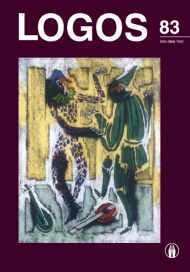Vaidinimo „Senovinės Kupiškėnų Vestuvės“ Kalba Kaip Regioninės Ir Etninės Tapatybės Ženklas
Language of the Performance An Ancient Wedding of Kupiškis People as a Mark of Regional and Ethnical Identity
Author(s): Asta BalčiūnienėSubject(s): Theatre, Dance, Performing Arts, Customs / Folklore, Pragmatics, Philosophy of Language, Identity of Collectives
Published by: Visuomeninė organizacija »LOGOS«
Keywords: dialect; region; culture; tradition; identity; the function of dialect; the field of use;
Summary/Abstract: The paper deals with the performance An Ancient Wedding of Kupi kis People, which was a success all over Lithuania in the second half of the 20th century. The paper aims to identify the reasons for its national relevance and significance that greatly exceed its regional popularity. The language of the performance, i.e. the traditional Kupi kis dialect, should have performed a differentiating function, i.e. to represent solely the region of Kupi kis. However, related to the narrowing of the differentiating function was the fact that in the second half of the 20th century the practice of the traditional wedding was still continuing. Therefore, the performance expressed not only the ethnic identity of a Kupi kis resident, but also of Lithuania at large. Thus, whenever the observation and the appreciation of traditions and customs are considered to be constructional elements of ethnic identity a dialect can reflect not only regional, but also ethnic identity.
Journal: LOGOS - A Journal of Religion, Philosophy, Comparative Cultural Studies and Art
- Issue Year: 2015
- Issue No: 83
- Page Range: 131-139
- Page Count: 9
- Language: Lithuanian

